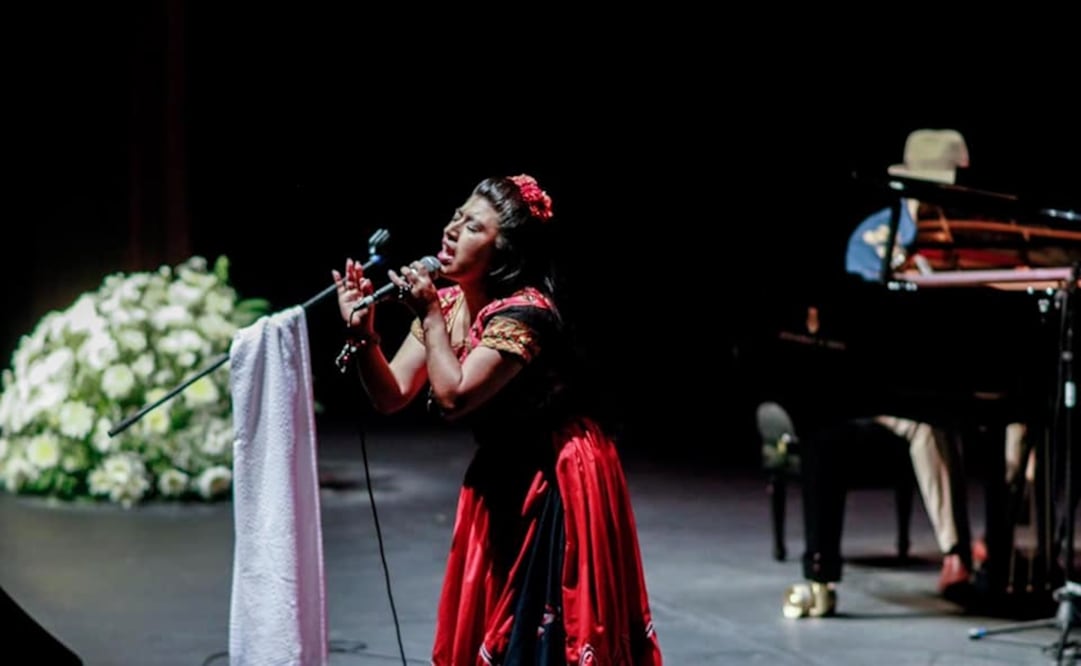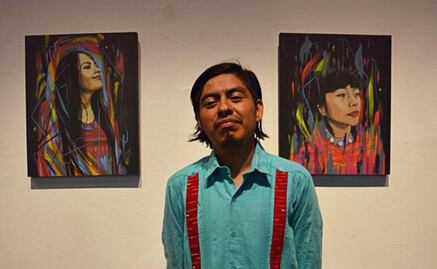Más Información

Giran nueva orden de captura contra dos excolaboradores de Silvano Aureoles; señalan presunto daño al erario por más de 130 mdp

Marx Arriaga dice que no dejará su cargo en la SEP; llama a una jornada de protesta en defensa de los libros de texto gratuitos

Inhabilitan por un año a juez que concedió amparos a Cabeza de Vaca; lo acusan de actuar fuera de la legalidad

San Valentín: Consejos para cuidar las finanzas en pareja; esto sugieren Profeco y Condusef para evitar "infidelidad financiera"

San Valentín: Evita fraudes al comprar regalos en línea este 14 de febrero; alertan sobre tiendas falsas y robo de datos
12 years ago, María Reyna González López left her Mixe community in Santa María Tlahuitoltepec , Oaxaca to become an opera singer and chase her dreams.
The accomplished singer will now present her debut album “Orgullosa soy raíz” at the Esperanza Iris Theater in Mexico City on June 16, at 18:00 hours , according to a press release.
At the beginning of her artistic journey, the singer from Oaxaca worked alongside the composer Joaquín Garzón and learned the bel canto technique to give life to the Opera Mixe project, a music ensemble that plays arias in Mixe, Maya, Mixtec, Zapotec, and Náhuatl .
“I used to sing popular music in my village because it’s what I listened to. But once I met Joaquín, he told me that I should learn a different technique. At first, I didn’t think I could sing like that. But thanks to his patience and trust, I realized that I could do something different,” the singer commented during a press conference at the A Poco No Forum, underlining the importance of showing indigenous languages from a different perspective.
Joaquín Garzón, the orchestra conductor for the music project, added that the idea of singing opera in indigenous languages other than Mixe had come from the Jóvenes Indígenas Urbanos (Young Urban Indigenous Persons) collective, who asked Reyna to sing music in their own languages.
María Reyna will sing all 12 of the album’s songs in both Spanish and indigenous languages, featuring Mexican classics such as “La Llorona” and “Madrecita,” which she will sing in Mixe, as well as “Guarda esta flor,” in Náhuatl, and “Ganas de vivir,” in Maya, among others. The singer will also perform “Un segundo” and “Lluvia,” by Irma Pineda and Nadia López, in Zapotec and Mixtec.
The Opera Mixe project started in 2014, seeking to recover Mexico’s roots through songs, lyrics, texts, and poems with contemporary arrangements and a bel canto interpretation.
dm
Noticias según tus intereses
[Publicidad]
[Publicidad]










